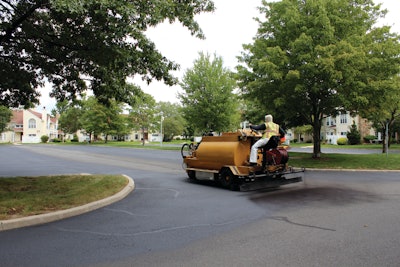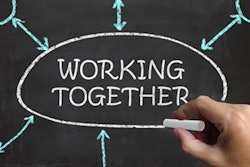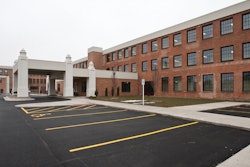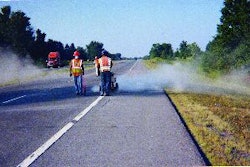
As of last October New Jersey’s Supreme-Metro Corp. was pacing ahead of the curve.
“From a time standpoint we’ve done more work heading into October than we had in 2011 and than we thought we were going to do,” says Jason Ciavarro, president. “We’re ahead about 5 percent in sales and our profitability has improved because of tools we’ve put in place over the years. We’ve ironed out a lot of the details to make sure we’re as profitable as we can be.”
And isn’t that what it’s all about?
This 24 year-old company has taken an unusual path toward its current success, and while few contractors would take the same route, Ciavarro thinks that some of the tools and approaches he has discovered and applied can help other contractors improve the success of their business.
In Supreme-Metro’s case Ciavarro, through a fairly long process, recognized he had to focus on and re-orient his company culture, both from the bottom up and from the top down. He recognized that regardless of marketing efforts, sales meetings, and crew operation in the field, if the Supreme-Metro culture wasn’t defined and reinforced the company could not get where he wants it to be.
“My growth is from determining what type of culture we want and pursuing that culture in detail consistently every day, and that’s where most people fail. They don’t follow through and do it day after day,” Ciavarro says. “I can do research and bring in consultants but if I don’t implement what they suggest then I haven’t gotten the value out of them. The same applies if I implement something but don’t follow through on it every day like it needs, or if I follow through just once in a while then I’m not going to be effective.”
Ciavarro credits a number of influences for his success, including a stint in the military, but he says the most important elements that contributed are assistance from a consultant to help him re-examine his business, a management/culture approach called Tribal Leadership, and an implementation effort approach based on a pyramid (similar to the food pyramid). The combination of the three, he says, has re-energized what was a successful small contracting company and enabled it to develop into a larger, more significant factor in the New Jersey pavement maintenance market.
9/11 Forces a Re-evaluation
Today the 40-person company generates 65% of work from paving and milling, 25% from pavement maintenance (including sealcoating, cracksealing, infrared repair and patching), and 10% from other work including concrete reconstruction and maintenance and light excavation and drainage. But it was a much smaller company on Sept. 11, 2001 when Ciavarro, leading a crew working on a commercial property in Parsippany, NJ, noticed a plane flying unusually low over the area where they were replacing catch basins.
“That was the plane that eventually crashed in Pennsylvania,” he says. “Not long after we heard about the other planes hitting the Twin Towers and the Pentagon I went home and talked with my wife, Kristen, and said ‘this can’t happen here’ and I told her I was going to enlist.”
Kristen told Ciavarro that he was crazy, that the couple had two young boys, but undeterred Ciavarro the next morning tried to enlist in the Marines and was rejected because of his age, 31. He was, however, eligible for the Army so he enlisted there, eventually serving three years, one outside the country in Iraq and Kuwait on paving crews constructing airfields and convoy routes “in full battle rattle.”
“While I was serving Kristen and Larry Dunn handled the company and kept it going at the level it was at when I left,” he says. “We were a much smaller company then, maybe 10-15 employees and doing the same kind of work but nowhere near the volume we do now and with less emphasis on paving.”
Ciavarro, who describes himself as “a very driven person,” returned to the company intent to bring it to another level – and he thought he knew how to do that. He started by visiting the company’s accounts, most of which welcomed him with open arms. “I thanked them for staying with us and I began building on those relationships and they were much deeper relationships after I returned,” he says. “We’re not a heavy marketing company. It’s really a strength of ours that we live off referrals and repeat customers.”
Next Supreme-Metro began getting more involved in paving “partly because of my experience in the service but also because I’d had a lot of time to think while in the service and realized that was a direction we wanted to grow,” he says. “I wanted us to become more than just a maintenance company -- and this part isn’t unusual in this industry as companies develop from sealcoating or striping and start adding services. There’s an evolutionary process and we followed it.”
But only to a point – then Ciavarro and Supreme-Metro began tackling a challenge many contractors face but few know how to handle.
Tribal Leadership and the Pyramid
“The key point was Supreme-Metro was getting to the size where I couldn’t touch everything that’s going on in the company. I used to do that but I couldn’t anymore. We’re too big so I needed to be able to hand things off to people and know it’s going to work.”
At National Pavement Expo in 2010 Ciavarro attended a seminar presented by Giselle Chapman, Chapman Business Solutions, talked with her after the session and eventually decided to hire her to consult for the company.
“I thought I knew this company and thought I knew what it was,” Ciavarro says. “But what I thought it was and what it was were two different things on two different levels. I thought we’d bring her in and just tweak a few things and we’d be good, that she would provide the icing on the cake. But as I talked over some problems with her and asked her some questions I started thinking a little differently. So we shaped up the company and put a plan together based on what I wanted to do.”
He says that prior to bringing in Chapman Supreme-Metro was a very organized company. “I was very in touch and in tune with everything -- but everything hinged on me. Now everything is so much better. Before we were delivering a good job but now we’re delivering a great job more profitably and more easily.”
Getting to that point involved learning, implementing, and getting employees to “buy in” to the Pyramid, and it required a reexamination of the corporate culture through a process called Tribal Leadership ( a book written by Dave Logan, John King, and Halee Fischer-Wright). Tribal Leadership, introduced to Supreme-Metro by Chapman, involves “leveraging the natural groups within a tribe to build a thriving organization,” according to the website. It involves, among other things, changing the culture from an individual focus to a team focus, learning how to “shift dysfunctional behavior and mismanagement,” identifying the cultural stage of the business and, eventually, “harnessing the full power of a tribe to accomplish more.”
“This is the most powerful thing I’ve ever been a part of, excluding the military,” Ciavarro says. “I can find this working in any capacity-- office, home, whatever.”
He says the impact of Tribal Leadership on the company can’t be overstated. “It helps identify the person you are and gives you tremendous insight into the people in your tribe. It helps you determine what types of people make up your tribe? What’s good about your tribe? What’s not working? Is everyone a chief (or does everyone think they are)? Do we have any Indians?
Working the Pyramid
He says that where Tribal Leadership helps evaluate and transform the company’s culture, including the stage it’s in and the stage each employee is in (there are five stages), the Pyramid is what enables Supreme-Metro to change the culture to what Ciavarro wants it to be.
“The Pyramid is the focus of development,” Ciavarro says. “Everything is based off that and it starts with trust, the base of the Pyramid: Building trust among ourselves, with each other and with our clients. We trust our employees to do the right job, to do it the right way, to fulfill the job specs, to work together, to show up on time, to show up every day. It’s very basic and very broad. If we can’t trust you to do those things then this isn’t going to work.”
Working up from the Pyramid base Trust is followed by Mastering Conflict, Achieving Commitment, Developing Accountability, and Achieving Results: Trust, Conflict, Commitment, Accountability, Results.
“When we interview people we explain the concept of the Pyramid. We explain the five components of the Pyramid and we tell them that this is what we live by and how we operate and if they don’t like it or can’t work that way they can’t survive here,” he says. “Everybody says ‘this is for me’ but it’s not for everybody.
“It’s all about the culture. They have to fit the culture,” Ciavarro says. “That doesn’t mean it all works out and there are no problems but the culture works for us so if you’re going to work here you need to make it work for you too.
“We tell them we’re different from other companies and we mean it. We are. We march to a different drum. We tell them that when we do this right we have no competition because we become the ones who are the standard setters.”
Ciavarro says the biggest thing team members have done among themselves is mastering conflict, second level of the pyramid. “We spend more time with each other than we do with our families and there’s no way people can spend that much time together under these types of working conditions and not have conflicts. They’re built-in to the job,” he says. “Face it; it’s difficult to work with everyone all the time. Mastering conflict goes a long way to making it much easier to work together and we work with them on how to do that.
“It’s difficult to confront someone when he needs it or when you need it but asking for two minutes of someone’s time at the end of the day gives everyone an opportunity to clear the air. Believe me it’s very uncomfortable at the start. Sometimes people get emotional, sometimes they cry or get mad, but once you get past that first 30 seconds you really have an opportunity to work something out. And it’s working something out that can last for a long time.
“There’s nothing better than knowing you resolved a conflict before you head home. It eliminates a lot of negative feelings and cancers in the company, people treat each other better, the problem doesn’t fester for several days where it can manifest itself in some other way, and people even treat your equipment better. It’s been very valuable to us and is a key part of our success.”
One element of the Accountability aspect of the Pyramid is what Supreme-Metro terms its “6 MIs” or six Most Important things each person has to do each day. “Each person puts them together for himself each day at the end of business for the next day before they shut off their computer,” Ciavarro says.
The 6 MIs don’t apply to laborers but Ciavarro says they do apply to everyone else including sales, mechanics, and management. “It can be as simple as, if I’m foreman of the paving crew, I need crack fabric on the truck for the next day’s job, things like that. So it can apply to just about anyone. It just gets things organized in advance and gets you thinking about the next day.”
“I look at the pyramid like a motor. If you don’t put gas in it or you don’t put oil in it it’s misfiring and won’t be working at all,” Ciavarro says. “This is the same. You have to work the pyramid to make it successful -- and we do.”
“The biggest reason for our success is that we identified that it was extremely important to have good people on your team,” he says. “Everything we do today stems from or reinforces that because you’re only as good as the people on your bus. You can have one piece of cancer and that one piece can damage the whole team so if we find we have a piece of cancer we work hard to cure it if we can. And if we can’t cure it we remove it.”
“It’s about being committed and being accountable,” Ciavarro says. “If you’re a foreman you have to be a foreman every day and you can’t be a foreman on just some days. You have to work to build yourself as a foreman but you also have to train and build and develop the people who work on your crew because if those people don’t develop then you’re not doing your job as a foreman. And if you’re not doing your whole job as a foreman then that crew, the company and eventually the customer are not going to be successful and the company won’t be able to be successful in that relationship with the customer.”



















